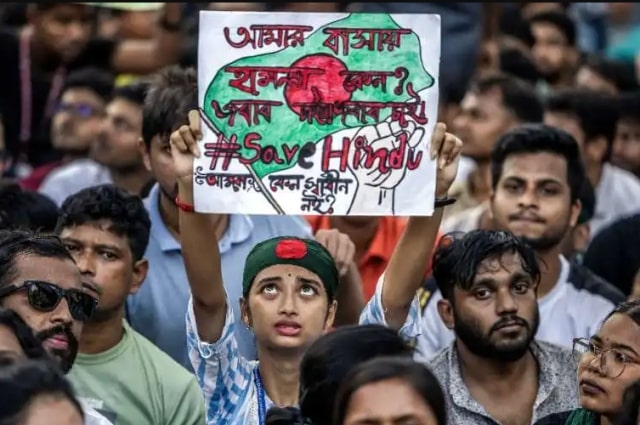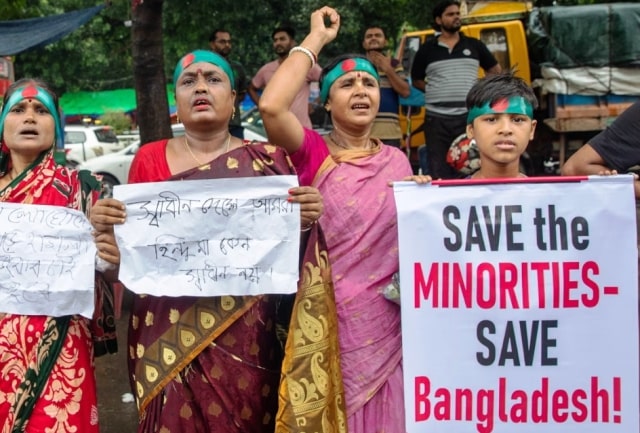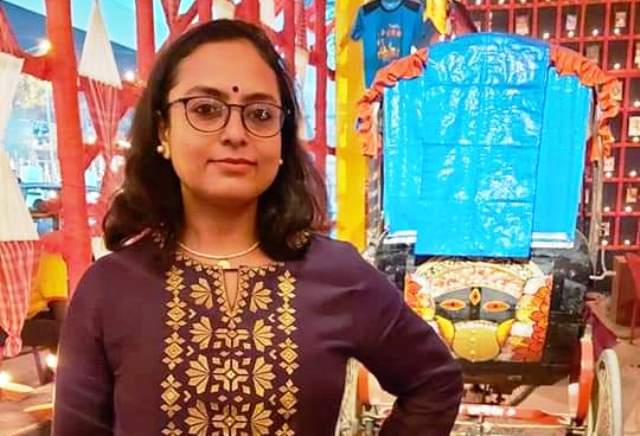The Muslims are in an overwhelming majority in Bangladesh. Their share in the country’s population of nearly 170 million is slightly over 91 per cent, the 2022 population and housing census says. At the same time, worryingly the percentage of minority population has continued to dip since the founding of the country in 1971 because of its persecution by fundamentalists, whose ranks are growing. Incidentally, the Hindus with 7.95 share of population are the largest of minorities that also include Buddhists, Christians and Ahmadiyyas.
Many in Bangladesh and outside are deeply anguished that even while secularism along with nationalism, democracy and socialism are the fundamental principles in the preamble of the Constitution, attacks on minorities continue to rise and violence perpetrators go unpunished. The earlier the new dispensation in Dhaka realises that remaining true to the fundamentals of secularism not only will create the right condition for a democratic and socialist society but the economy will also benefit immensely if all live in peace and harmony.
Five Indian states have a combined over 4,000 km long border with Bangladesh of which 916 km are still to be fenced facilitating illegal movements. The exodus threat of minorities, particularly the Hindus, will only grow if their persecution persists. And their natural destination remains India.
In any case much to its mortification, India today is surrounded by unfriendly, if not hostile, neighbours. Leave out the Himalayan kingdom Bhutan, which is more like Switzerland equally well disposed to every other nation, the rest of India’s other immediate neighbours having undergone regime changes in recent times have no love lost for the largest south Asian country.
The birth of Bangladesh ending the subjugation of Bengalis, their language, culture et al by an ever hostile and domineering Islamabad was a revolution with support from India. That country has come full circle with the dethroning of Sheikh Hasina that ended an unbroken 15-year rule by the Awami League.
The change in August came about through swelling street protests with students in the forefront. Their prime demand that reservation of jobs for the descendants of freedom fighters after all these years was beyond challenge. What, however, totally unacceptable was mob rule that saw ascendancy of Islamist forces that in no time torpedoed whatever remained of the secular character of Bangladesh. Image of the country got sullied in the process in the eyes of democrats and liberals around the world.
ALSO READ: Hindus Persecution In Bangladesh Vindicates Need For CAA
Even while the interim government led by Muhammad Yunus, 2006 Nobel peace prize winner, continues to make unconvincing efforts to play down the persecution of minority communities, particularly the Hindus and the Buddhists, the world is aghast at secular living principles getting increasingly compromised in Bangladesh. Here it will be appropriate to quote from a report of the Bangladesh Hindu-Buddhist-Christian Unity Council that in the first 15 days of regime change, the Hindus and Buddhists were targets of as many as 2,010 attacks. Moreover, there were desecrations of Mazars (mausoleums of religious leaders), arson of Hindu temples and looting of minority properties. Harijan (dalit) colonies are not spared either by the newly energized Islamists.
The question now is whether New Delhi got the right inputs well in advance from its intelligence network that the new regimes in Sri Lanka, Nepal and finally Bangladesh would seek revision of equations with India. Perhaps not. If intelligence inputs were there well in advance of arrivals of crisis points, then New Delhi would have been better prepared to deal with the new situations in neighbouring countries instead of being taken by surprise. A nagging concern now is, Nepal, Sri Lanka and Bangladesh may all be pivoting away from India and seeking closer ties with China.
All the three countries are part of China’s expansive Belt and Road Initiative (BRI) where the focus is on building infrastructure, road and port in particular. Infrastructure development requiring large investments is what these countries badly need. Though its BRI ambition has been scaled down of late due to its own economic woes and Beijing putting pressure on borrowing countries to properly service debts, including timely repayments, China has strategic compulsions to be accommodative when it comes to countries in the neighbourhood.
Such an analysis finds support in President Xi Jinping telling Nepal’s communist prime minister KP Sharma Oli during his recent three-day visit to its northern giant neighbour that China would help Nepal to be transformed from a land-locked to a land-linked country, facilitating trade. Furthermore, Xi gave Oli assurances of China’s continued support to Nepal’s economic development “to the best of its ability.” A secular trend among all the three countries is to pare their dependence on India signifying a greater degree of reliance on China for trade and economic cooperation. Incidentally, India happens to be the largest trading partner of Sri Lanka and Nepal, while it has the second largest share of Bangladesh trade, next to China.
At this point when disturbing developments are noticed across the world, leave aside India, one needs to read closely Yunus interview with Japanese Nikkei Asia for an understanding of Dhaka’s engagement in overhauling its foreign policy. The main thrust of the exercise is to undo many of the policy thrusts, especially close ties with India, of the Hasina regime. At the same he made it a point to describe China as a “friend,” which keeps on supporting “us in various ways from building roads, power plants and sea ports.”
Dhaka’s tilt towards Beijing is much in evidence. When it comes to India, Yunus appeared to give lip service as he said Bangladesh should have a “strong and cooperative relationship with India.” Sadly in the same breath, the interim government chief adviser made attempts to play down the seriousness of attack on minorities, religious leaders and places of worship to the disappointment of people across Bangladesh border.
Reacting to New Delhi’s rightful concern about the safety of Hindus, Yunus instead of being apologetic said: “Much of what’s being said about this issue is propaganda and not based on facts.” As the Hindus and Buddhists continue to live in fear, the Yunus statement is dismissed straightaway. A few days after the Nikkei interview, a US state department official visiting India expressed “deep concern about news of persecution of minorities emerging from Bangladesh.” Earlier, during the US Presidential election campaign and also afterwards, Donald Trump was unequivocal in condemning the violence against minorities in Bangladesh.
MPs from across the floor in the UK parliament have condemned the happenings in Bangladesh in strongest terms and urged the government to take diplomatic steps for protection of Hindus. In fact, Tory MP Bob Blackman has gone as far as describing the communal incidents in Bangladesh as an “attempt at ethnic cleansing.” The uncertain political situation in Bangladesh where life remains at risk finds expression in the recent UK government travel advisory telling its citizens not to travel to the south Asian country unless it is “absolutely essential.” The US travel advisory is no different. Both the Western countries will not rule out the possibility of “terrorist attacks” at any time.
That considerable sections of the Bangladeshi population are perceived as irreverent of faiths other than theirs is underlined by the UK advisory saying foreign nationals will be a risk in “crowded areas and at religious places and political rallies… Some groups (Bangladeshi) have targeted people who they consider to have views and lifestyles contrary to Islam.”
Now an ISKCON centre in capital city Dhaka has been burned down and its other establishments remain vulnerable to attack by religious zealots. Even while Sheikh Hasina as prime minister went on assuring safety and security of minority communities, the fundamentalists would not miss an opportunity to do harm to the Hindus.
No wonder, the Hindu population constituting over 20 per cent at the time of Independence came down to 7.95 per cent in 2022, when the last census was done. Will the Hindus and other minorities remain condemned to live in perpetual fear in Bangladesh or the international community be able to put pressure on Dhaka so that secular principles are upheld?
In other regional relations, Yunus called China “our friend”, saying, “From building roads and power plants to seaports, they’re supporting us in various ways”.




